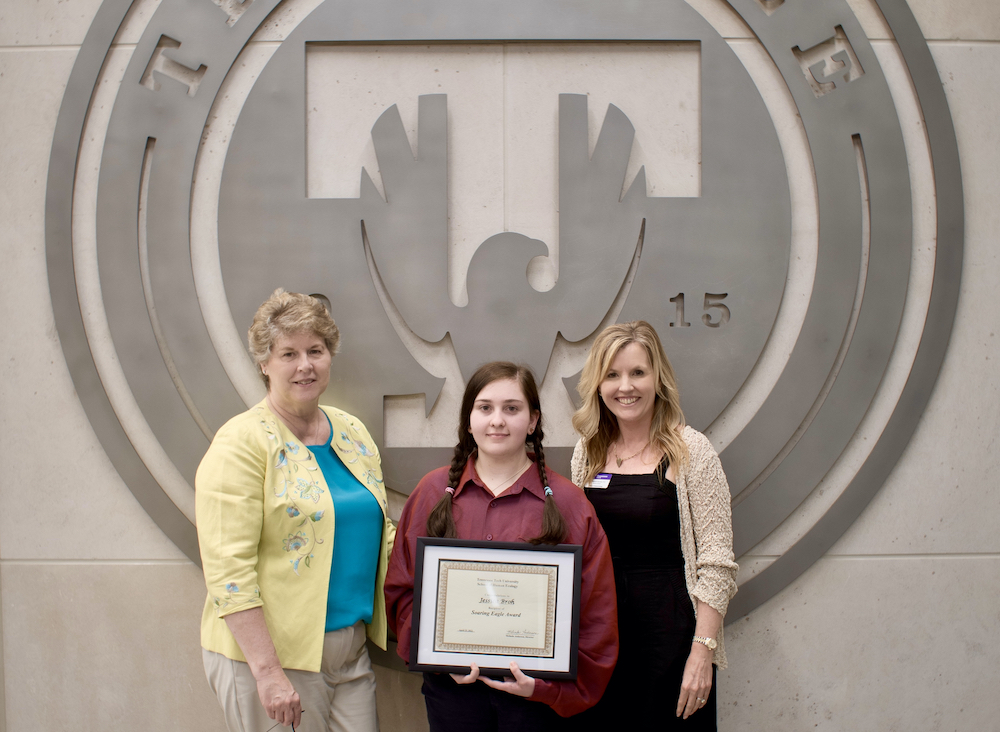
COOKEVILLE – Last year, when Elizabeth Ramsey, assistant professor of human ecology at Tennessee Tech University, and Melinda Swafford, professor emeritus, took a look at the textbooks being used in family and consumer sciences courses, they noticed something concerning. The newest editions of these books had been written in the early 2000’s, which meant that the research for those books had been done in the late 1990’s.
Knowledge on how humans learn and develop has grown in leaps and bounds since then, however these textbooks were not reflecting this new information. Ramsey and Swafford decided to do something about it. They decided to write an updated textbook themselves and even found a unique way for Tech students to be involved in the process.
They pitched the idea to textbook publisher Cognella, who accepted their proposal. The book is scheduled to come out this fall, filled with updated information and studies from not only Ramsey and Swafford, but also other Tech faculty including: Melinda Anderson, director of the school of human ecology; Rufaro Chitiyo, associate professor of human ecology in child development and family relations; Samantha Hudson, graduate program director in community health & nutrition; Hannah Upole, assistant professor of human ecology in merchandising and design and consumer economics; as well as a handful of former students.
One of the biggest additions to studies of child development has been the chapters on trauma-informed care. Called ‘Adverse Childhood Experiences,’ or ACEs, the study marked three categories of negative experiences: household dysfunction, abuse and neglect, which are further divided down into smaller categories. The more ACEs a child experiences, the higher chance they will start showing symptoms such as developmental delays, health issues and behavioral problems.
“When I was teaching social health, I was teaching things like how to identify good role models, what were healthy relationships and unhealthy relationships, anger management and conflict resolution,” Ramsey said. “We used to be able to say, ‘That’s what kids are taught at home.’ But the truth of the matter is, that’s not what kids are being taught at home anymore. And so, it becomes that then we’re seeing all these behavior issues.”
The new textbook, “Family and Consumer Sciences: Preventative and Restorative Education,” helps teachers-in-training understand how the human mind develops as we age and gives ways to help children who are suffering. It’s an extension of what is already being taught in Tech classrooms.
“When my students get finished with these classes, students say to me, ‘I feel like I finally understand myself and understand my family and how my family functions,’” Ramsey said. “Because we look at human development throughout the lifespan, and you begin to understand relationships and how families function – or how they don’t function.”
When it came time to include graphics for the textbook, Uphole recommended Tech housing and design major Jessica Broh from Murfreesboro.
“I was incredibly excited to contribute to this project, but I was also close to tears knowing Dr. Upole recommended me,” Broh said. “I knew that besides some sketches and older projects, Dr. Ramsey hadn’t seen any of my work, which meant she had to trust that I could do this.”
Broh worked in pen and ink, as well as marker and colored pencils to create graphics for the textbook. Ramsey loved one in particular so much that she requested it be made into the cover. After a strenuous approval process by the book publisher, they were finally given permission to use the graphic.
Broh graduates this May and after heading to graduate school, she wants to work in custom residential architecture to design homes that are unique as the people inhabiting them. Being able to create a book cover for a published work has not only given her something to put on her design resume but also given her real-world experience on working for clients.
“My absolute dream is to work for a firm that designs houses for people who aren’t afraid to challenge design norms,” Broh said. “Architecture will never change if we continue to use the current predominant design style as a safety net.”
“I feel really good about this textbook,” Ramsey added. “I feel like we’re going to make a difference for universities across the nation.”








